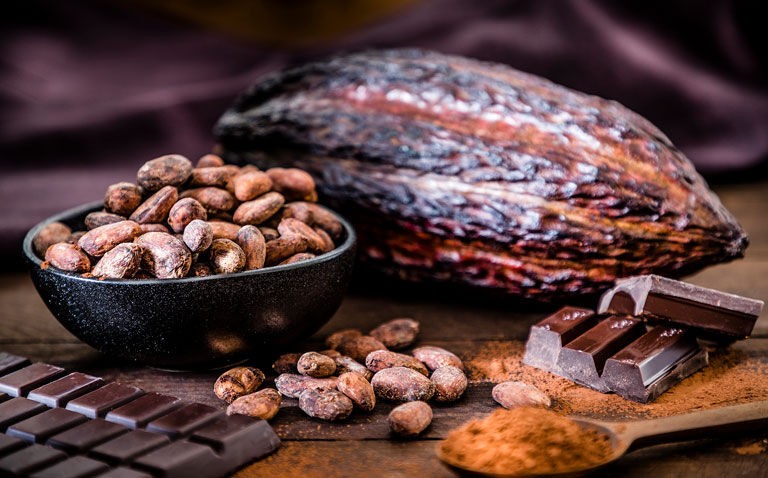A cocoa extract given to older adults for three and a half years failed to reduce overall cardiovascular events but did lower the death rate
The use of a cocoa extract containing flavanols did not reduce the overall incidence of cardiovascular events but did lower the incidence of cardiovascular deaths. This was the main finding of a randomised trial by researchers from the Division of Preventive Medicine, Brigham and Women’s Hospital, Boston, US.
Flavan-3-ols, which are a subclass of flavonoids, represent a type of poly-phenolic substances which are present in a range of plants such as cocoa and cocoa containing foods such as chocolate. Furthermore, research demonstrates a beneficial effect of cocoa on blood pressure, insulin resistance, and vascular and platelet function.
As well as flavonoids, a cocoa extract typically contains other ingredients such as epicatechin and the methylxanthines, theobromine and caffeine. In fact, studies suggest how the presence of these latter components mediate an increased plasma concentration of epicatechin metabolites that coincides with enhanced vascular effects.
To date, much research which has focused on the cardiovascular effect of cocoa containing products such as chocolate, and suggests a small inverse association between consumption and both coronary heart disease and stroke.
However, there is a lack of data from large-scale trials, on the cardiovascular benefits of a flavanol-rich cocoa extract which contains all the bioactive compounds present in the cocoa bean.
As a result, the US team undertook the Cocoa Supplement and Multivitamin Outcome Study (COSMOS), a pragmatic, randomised trial which sought to examine the effect of a cocoa extract on cardiovascular disease and cancer in older adults. For the present study, the authors have only reported on the cardiovascular outcomes.
The team recruited adults over 65 years of age, who were initially free of major cardiovascular disease and given either a cocoa extract containing 500 mg/day of cocoa flavanols and a multivitamin supplement or matching placebo.
All participants were required to stop taking cocoa supplements (although chocolate could still be eaten) and a blood biomarker of flavanol intake were initially measured and repeated after years 1, 2 and 3. The primary outcome was a composite of total cardiovascular disease (CVD) outcomes including myocardial infarction (MI), stroke, cardiovascular mortality and coronary revascularisation.
The authors then set the secondary outcomes as the individual components of the primary outcome, i.e., cardiovascular death, stroke etc.
Cocoa extract and cardiovascular outcomes
A total of 21,442 individuals with a mean age of 72.1 years (59.1% female) were randomised to cocoa (10,719) or placebo and followed for a median of 3.6 years. Based on an analysis of plasma samples, there was a three-fold higher increase compared to placebo, in the levels of flavanol biomarker and this did not differ between follow-up assessment.
During the follow-up period there were 866 confirmed cardiovascular events, 410 in those taking the cocoa extract and 456 in the placebo group, giving a hazard ratio, HR of 0.90 (95% CI 0.78 – 1.02, p = 0.11).
For the secondary outcomes, only cardiovascular death was significantly different (HR = 0.73, 95% CI 0.54 – 0.98).
The authors concluded that while the cocoa extract did not reduce the primary outcome, longer follow-up of trial participants may further elucidate the relationship between consumption of the extract and cardiovascular events.
Citation
Sesso HD et al. Effect of Cocoa Flavanol Supplementation for Prevention of Cardiovascular Disease Events: The COSMOS Randomized Clinical Trial Am J Clin Nutr 2022










